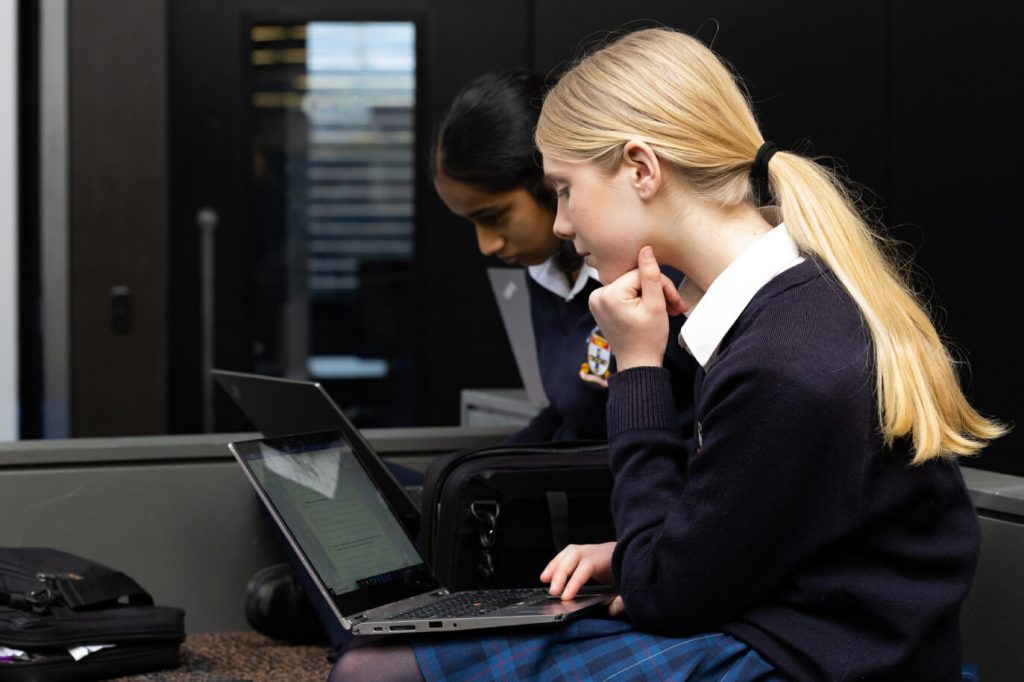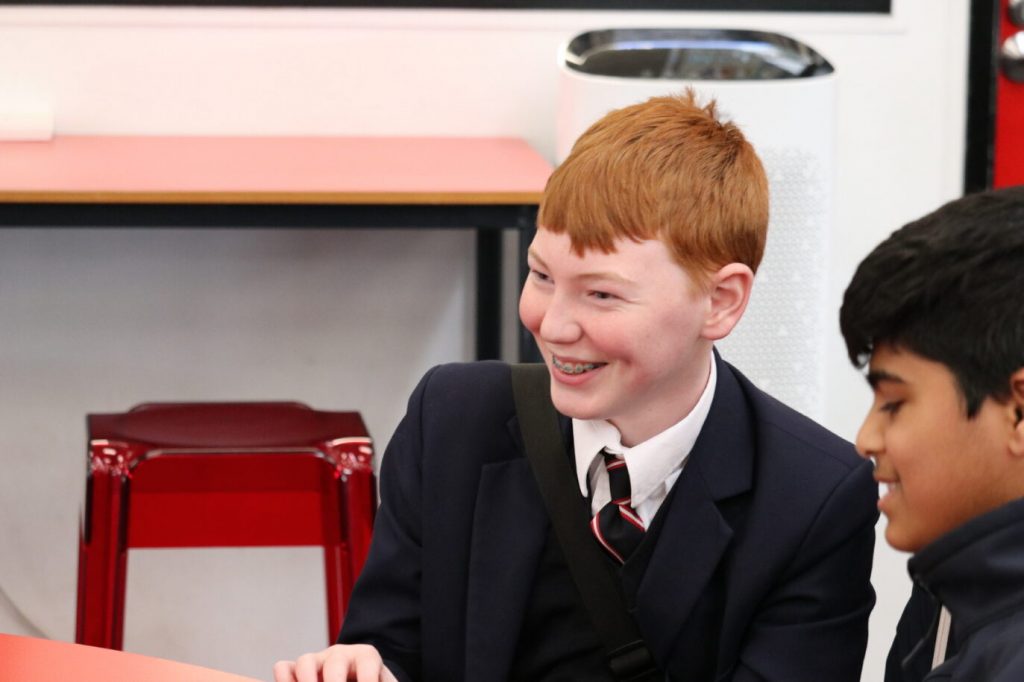Transition to High School: Navigating New Classes and Growing Independence
Tuesday 21st November 2023
The primary school to high school transition is an important period in the life of a student, and one that helps to set up what their entire secondary education experience is like. While there are a lot of new responsibilities and demands to manage, starting high school is also an exciting time with many opportunities to grow and thrive. Each child’s transition experience is different, but these are our best tips and important notes on how to prepare for high school.
Open to change
The first year of high school is a significant adjustment in a young person’s life, in more ways than just classes. With a variety of new subjects to explore, extra curricula activities, multiple teachers, and a greater emphasis placed on independence, secondary school is typically very different from any educational experience that has come before. A key factor in the transition from primary to high school is going from being one of the oldest students at primary school to the youngest at secondary. Adapting to this new dynamic can take some time, but year 7 students are supported in this change and quickly made to feel welcome.
Successful transitions between primary and secondary school lay the foundation for positive experiences through to the end of high school. Meeting the changes well helps students become confident in forming new connections, capable of independent study and learning, and ready to develop into unique young adults. To make the most of this next phase of school, new students should come in with an open mind and a willingness to explore the new experiences of high school.
A new environment
In most cases, becoming a year 7 student also means starting a new school, which makes it necessary for students to learn how to navigate their new environment. While this may feel obvious, it is still an important process and can cause some headaches when having to move between different classrooms and areas. In the first few weeks of the secondary school transition, it is worthwhile learning the key areas of the school, including the library, sports fields and gym, lab and science facilities, art rooms and general classrooms. Having at least a basic understanding of the school’s layout will accelerate your acclimation to a new school.
Building a support system

Arguably the biggest cause for anxiety in students while transitioning to high school is the process of making friends and building connections with their peers. One of the easiest ways to find new friends is to get involved — in a sport you love, lunchtime club, or extra curricula activity. It is these spaces where you can more easily find people with similar interests and character, but it is important that every student doesn’t simply seek to ‘fit in’ with other students, but truly finds people with whom they belong. Belonging can help transform the everyday school experience into one of positivity and achievement.
In addition to their peers, students are also exposed to more teachers than ever before, with more educators specialising in particular subjects and fields. We encourage students to communicate openly with their teachers about the work and where they may need additional help. Regular and authentic communication will deepen the level of trust students have in staff and make for a more robust support system.
Optimising your study
Secondary schooling brings with it a more vigorous style of education, research and assessment. Students have more subjects to study, and while this leads to greater variety of choice in educational pursuits, each subject also has a heavier workload than primary school. Students can stay on top of these demands with regular homework and revision time throughout the week, and by communicating with their teachers whenever there is content they are having difficulty understanding.
Establishing good study habits during the high school transition will leave you in good stead in the final years of school, where assessments are at their most frequent, important and demanding. Students should try to create a comfortable and distraction-free study space they can rely on at home to focus, and work on truly understanding what they are learning in class, rather than simply memorising facts and information.
Embracing independence
High school students are expected to be more responsible not only for their own learning, but in charting an independent course of experience. It is at this stage where students can take ownership of pursuing their interests and passions, which can develop into lifelong skills. Part of this involves practising time and task management, and learning how to stay on top of a variety of responsibilities, which students should begin to practise during the transition to secondary school. Calendars, study planners and regular revision time can help keep you well prepared for everything.
Some of the most important tips for starting high school do not even relate directly to the classroom. Students need to make a conscious effort to eat healthy food and get plenty of sleep, particularly as they begin to take more control over these areas of their lives as they get older. Looking after your body provides major benefits for focus, ability and motivation.
Using wellbeing resources
It is not uncommon for students to struggle to balance all of these different aspects as they adapt to a new, more rigorous environment. Even those who feel well on top of things can still have tough times, but the best secondary schools provide a variety of wellbeing resources including counselling services, breakout spaces, and time away from the classroom. Students are encouraged to make the most of these opportunities to unwind and take pressure off of themselves. It can be hard not to focus on grades and achievement, but success at school is all about the process of learning and growing as individuals, not getting the highest marks.
Making a successful transition to secondary school
Starting secondary school is filled with opportunities for personal development and learning. At St Francis Xavier College, we welcome all our new students and help to make the transition period as smooth as possible. We understand the challenge of adapting to high school, but encourage students to embrace the new experiences. Following these tips for high school will help you start thriving from your first day, and ensure you can make the most of your high school experience.

